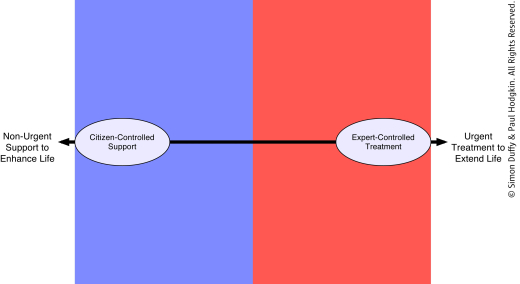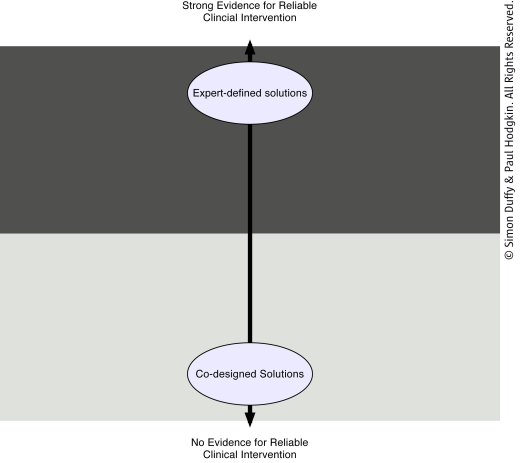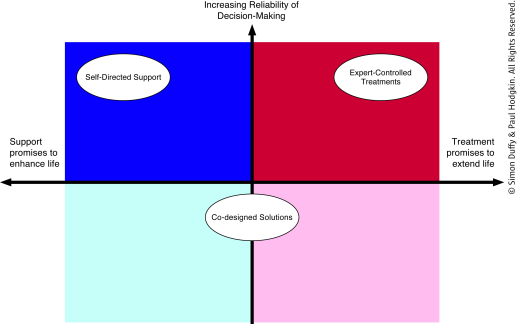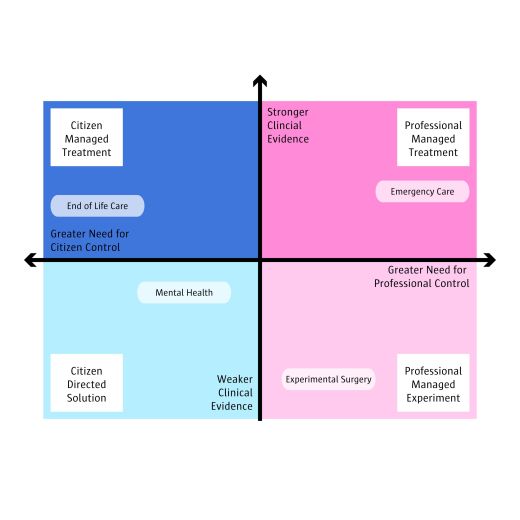When our life is threatened and real expertise offers us some possibility of extending or improving our life then it makes sense to share control with appropriate professionals.
Decision-making in healthcare marks an extreme and interesting aspect in the relationship between citizens and professionals. At the point of life and death the value of another person, the expert professional, can be vital; however the citizen must remain in control if their life is going to go well.
The following model was first suggested by Dr Paul Hodgkin, then further developed by Simon Duffy and Vidhya Alakeson.
When we are at death's door and when an expert has the means, at least potentially, to extend our lives it makes perfect sense to give control to that expert. But when it comes to shaping and improving our own life then no expert is likely to be able to deliver.

Reliable expertise relies upon a body of knowledge. When such knowledge is lacking then professionals and citizens must collaborate to make sensible decisions.

We are rightly more willing to sacrifice our autonomy to health care professionals to the extent to which they can both save us from likely death and apply reliable knowledge. Self-Directed Support becomes more relevant to the degree to which our own expertise is critical to the quality of decisions. Co-designed solutions are rational where there is greater uncertainty.

The decision-making framework developed is suggestive of a map of functions that are more or less appropriate for Self-Directed Support:
Professionally managed treatments - where we should sacrifice much of our autonomy make most sense in emergency care and in other situations where our life is threatened and expert clinical judgement can make all the difference.
Citizen managed treatments - we need to stay in control of our treatment when we are trying to make the most of our lies - even at the very end of life - and where knowledge of our values, preference and circumstance is vital.
Citizen direct solutions - when things are uncertain and no treatment is available, but some promising approaches may help improve our lives then we may be able to test out and develop our own personal solutions.
Professionally managed experiments - sometimes even when knowledge is weak, we may be prepared to put ourselves at risk and undertake experimental procedures if the possible benefits are high enough.

The publisher is The Centre for Welfare Reform.
Decision-Making in Health © Simon Duffy, Vidhya Alakeson & Paul Hodgkin 2011.
All Rights Reserved. No part of this paper may be reproduced in any form without permission from the publisher except for the quotation of brief passages in reviews.
health & healthcare, politics, England, Inspiration